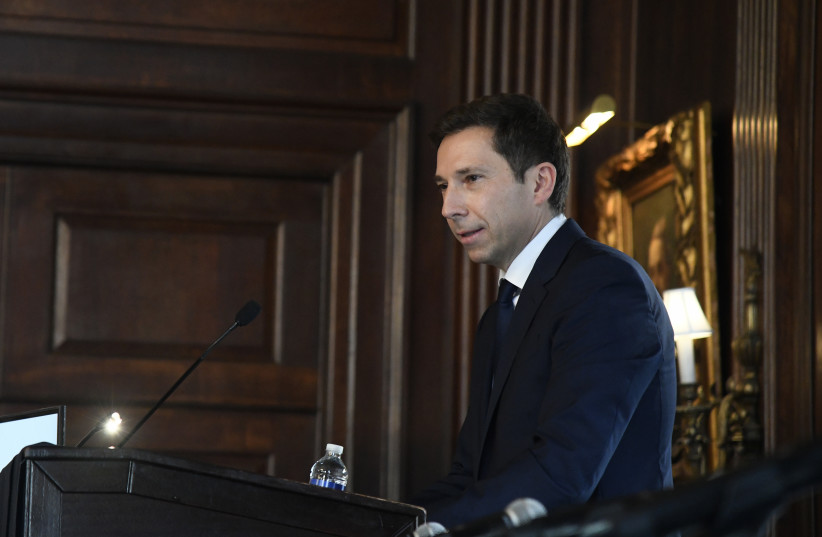An Israeli high-tech company was honored last week for its work applying artificial intelligence and machine learning to the field of global conflict resolution.
Project Didi, a ‘peace-tech’ company headquartered in Petah Tikva, received a special commendation from the Kluz Prize for Peace, a project launched last year to “identify and support groundbreaking initiatives at the intersection of technology and peace-building.”
The ceremony took place at the Union League Club in New York on September 20, on the eve of the International Day of Peace during the 78th United Nations General Assembly.
Shawn Guttman, a graduate of Reichman University’s MA Program in Diplomacy and Conflict Studies, founded Project Didi in 2022. He summarized the company’s work as “taking academic theories and operationalizing them into real-time tools for peacebuilding.”
The first theory looked at by the company was the 'ripeness theory,' which seeks to explain why parties might be hostile to a proposed agreement at one time, but at a later point agree to those very same terms.
Project Didi used the parameters identified by ripeness theory to build a model of the ten years leading up to the signing of the 1998 Good Friday Agreement, which brought an end to decades of violence in Northern Ireland.
Applying the tools of discourse analysis to speeches in the UK Parliament about the conflict, the company confirmed what ripeness theorists had proposed. The next iteration of this model will also use reports from radio and newspapers, for greater insight into the subtleties of speakers’ and writers’ perceptions.
“Ripeness,” Guttman explains, “lives in the subjective perceptions of the people who are part of the conflict; not in the objective facts that outsiders look at and ask, ‘why haven’t you solved this?’”

Company seeks to apply technology to conflicts now, including at home
Ultimately, Project Didi aims to take this data-driven approach and apply it to real-time advising for actors on the ground. That includes, Guttman says, conflicts in the Israeli firm’s own backyard. “We are trying to figure out how to apply this tool to what’s going on with the judicial reform,” he says, “and all that it can show us about what the different sides think about each other. If it can help us find the way to a pragmatic solution – not just all the different sides yelling at each other and getting stuck – that’s our next big challenge.”
Project Didi was one of three peace-tech companies honored with a special commendation by the Kluz Prize. A ‘Non-Profit Organization Advancing Peace’ accolade was given to the Human Rights Data Analysis Group (HRDAG) for their work using machine learning and other data analysis tools to document patterns of violence during the decades-long Colombian armed conflict.
A ‘Big Tech Building Peace’ commendation was awarded to a project by the big-data firm Palantir, for its work assisting more than 130,000 Ukrainian refugees in their passage to safety and resettlement.
The Kluz Prize itself, which comes with $20,000, was awarded to Commit Global, for its Humanitarian Digitical Civic Infrastructure to support Ukrainian refugees. The group’s digital ecosystem was deployed within 48 hours of the start of the war and provides verified information on border crossings, legal issues, social services, housing, and counseling to people fleeing Ukraine. The competition drew more than 80 applicants from over 35 countries. Its jury and panelists are pulled from the nonprofit, investment, and international affairs fields, as well as from the worlds of technology and academia.
